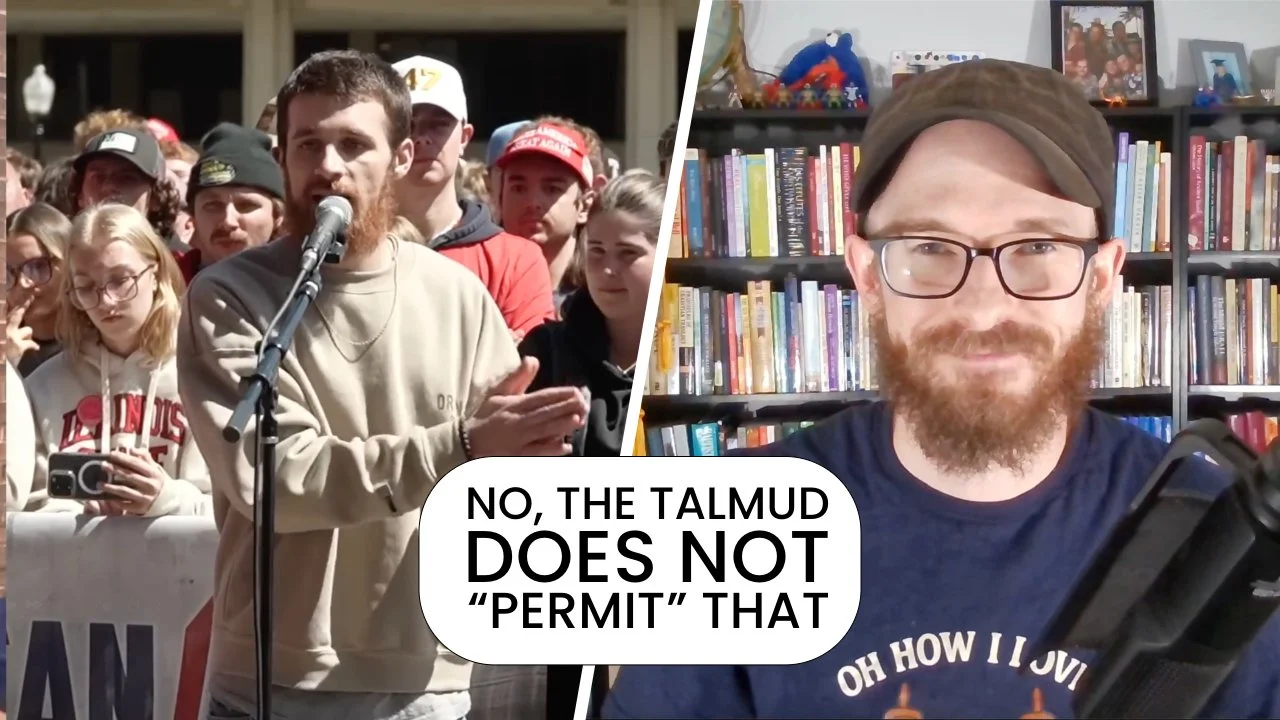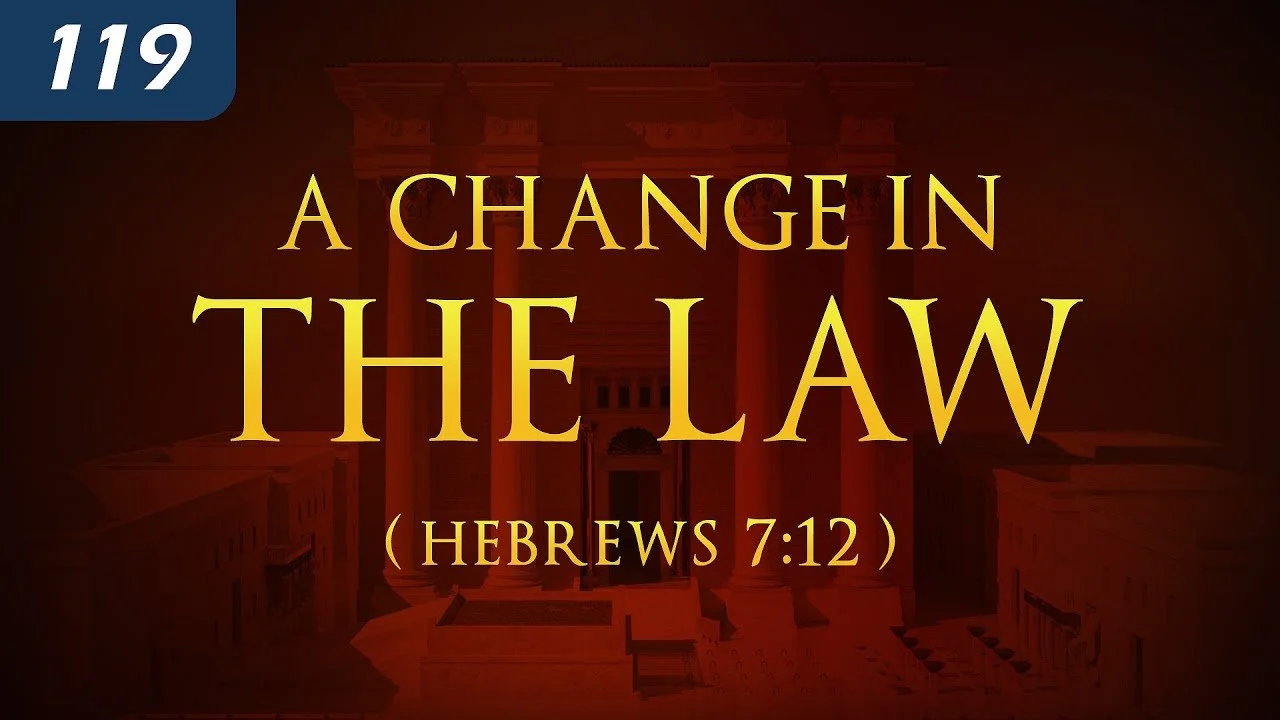Did God revoke his food laws? Did he abolish the distinction between clean and unclean animals? Many argue that he did based on Peter’s vision in Acts chapter 10. However, recent scholarship is challenging that interpretation. In his new book, Whom God Has Made Clean: A Pronomian Pocket Guide to Acts 10:9–15, my guest, R. M. Bailey, argues that Peter’s vision isn’t about food at all. Bailey challenges popular antinomian interpretations and offers a pronomian reading that better fits both the immediate context and the broader biblical narrative. I’m excited to talk to him about this important passage.
There Was No Conspiracy to Suppress the Book of Enoch: A Response to Tim Alberino
"Nothing is Unclean"? Examining Romans 14:14 (Interview w/ Rob Vanhoff)
What did Paul mean in Romans 14:14 when he wrote, "nothing is unclean in itself"? Did he believe that the Torah's distinction between clean and unclean food had been erased? Or is he talking about something else entirely? Joining me today to discuss this is Rob Vanhoff. He is a biblical scholar, author, and instructor at TelosTorah Bible Academy. I'm excited to have Rob with us to talk about this passage.
Does the Torah Speak to the Value of the Unborn? (Interview w/ Dr. Carmen Imes)
What does the Torah say about the value of the unborn? There is an interesting law in Exodus 21:22-25 that speaks to this question. Here to discuss this with me is Dr. Carmen Imes, an Old Testament scholar, author, and Associate Professor at Biola University’s Talbot School of Theology. She’s currently working on a commentary on Exodus and brings valuable insights into this important passage. We also explore how this passage informs contemporary debates about abortion.
The Truth About the Talmud
Paul Does Not Condemn the Biblical Calendar in Galatians 4:10 | A Response to Steven Anderson
In Galatians 4:8–11, Paul rebukes the Galatians for observing “days and months and seasons and years.” What exactly does Paul mean by this phrase? The standard antinomian view, represented by Pastor Steven Anderson, is that this is a reference to the biblical calendar outlined in the Law of Moses. Thus, Paul is condemning the observance of the Sabbath and biblical festivals, or so the argument goes. But is that really what this passage teaches? In this video, we take a closer look at the context and historical background of Galatians 4:10. In contrast to Pastor Anderson, I contend that Paul is not chastising the Galatians for observing the biblical calendar, but for something entirely different.
Is Passover Offensive to Christ? | A Response to Joel Webbon
Ian Carroll is Wrong about the Scofield Bible
Ian Carroll recently claimed that the Rothschild family commissioned Cyrus Scofield to create a new, pro-Jewish version of the Bible—the “Scofield Bible”—to dupe evangelicals into supporting Israel and the Jewish people. The problem, however, is that Carroll’s theory has zero evidence and is purely a product of his own fevered imagination, as I explain.
5 Reasons Christians Should Study Apologetics
Marital Intimacy on the Sabbath: Does it Violate the Commandment?
Sabbath-Keeping Baptists? Meet the Seventh Day Baptists (Interview w/ Nicholas J. Kersten)
It is widely acknowledged that the earliest Christians observed the seventh-day Sabbath in obedience to the Fourth Commandment. What is less often acknowledged is that there have always been Christian communities that continued to honor the seventh-day Sabbath throughout history. One such community is the Seventh Day Baptists, which emerged from the Protestant Reformation. I am excited to be speaking with Nicolas Kersten, the Director of Education and History for the Seventh Day Baptist General Conference, to learn more about this Sabbatarian Christian tradition.
What Wes Huff Got RIGHT About the Sabbath on the Joe Rogan Experience
Meeting Paul the Weird Apostle (Interview w/ Ryan Lambert)
Should we make Paul "weird" again? My guest Ryan Lambert argues that we should. But what does that mean? In his new book, "The Weird Apostle," Ryan invites us to rediscover the historical Paul, a faithful Torah observant Jew. While this picture of Paul might feel "weird" from a modern Western standpoint, it offers a more accurate understanding of who Paul really was. I'm excited to have Ryan with us to discuss his book.
A Change in the Law (Hebrews 7:12)
In Hebrews 7:12, the author announces, “For when there is a change in the priesthood, there is necessarily a change in the law as well.” Many have taken this to mean that the Levitical priesthood and the entire Law of Moses has been overturned. But is that really what the author of Hebrews is saying? Actually, there are some major problems with this interpretation.
James Understood the Gospel. Matt McMillen Does Not.
A Christian TikTok/Instagram influencer named Matt McMillen claims that James did not fully appreciate the Messiah’s work on the cross and did not understand the gospel. He bases this claim on James’s affirmation of the ongoing validity of the Law of Moses, which McMillen views as conflicting with the Gospel. In this video, I interact with McMillen's objections.
Keep Torah Better Than the Scribes and Pharisees (Matthew 5:20)
Jesus taught that the Law of Moses is not abolished (Matthew 5:17), that it will remain in force for as long as heaven and earth endure (Matthew 5:18), and that his followers must obey and teach it (Matthew 5:19). Now, in Matthew 5:20, he demands that his followers surpass the righteousness of the scribes and Pharisees. But what does it mean to surpass their righteousness? In this video, we will explore this question in detail.
Developing Biblical Friendships | Pronomian Scholarship (Interview w/ Dr. Benjamin Szumskyj
Are our friendships important to God? How do we build deep, meaningful friendships rooted in faith and Scripture? I’m excited to explore these questions today with Dr. Benjamin Szumskyj. In his recent book, Dr. Szumskyj reflects on how we can cultivate godly friendships, drawing inspiration from the bond between David and Jonathan in Scripture. He also shares his perspective on Pronomian (pro-Law/Torah) theology, and his experience advocating for this this view within the academic world. I hope you’re blessed by the discussion.
I Did NOT Mischaracterize Dr. Averbeck's Views on the Law of Moses
Andrew Schumacher has accused me of mischaracterizing Dr. Richard Averbeck’s position on the Law of Moses during my interview with him. So, I decided to show some clips from the interview, which debunk Andrew's accusation. Furthermore, I reached out to Dr. Averbeck directly to ask him if he thought that I misrepresented him. In this video, I’ll show you what Dr. Averbeck said.
Andrew Schumacher Caught Lying About My Use of Scholarship
A YouTuber named Andrew Schumacher recently published a hit piece where he tries to discredit me for my use of scholarly resources, accusing me of appealing to scholars in a misleading way. This isn’t the kind of video I typically enjoy making, but I believe it’s important to address for the reasons I explain in the video. Here, I respond to Andrew’s claims point by point. I hope this will be helpful and encouraging to you!
How the Biblical Festivals Point to the Messiah (Interview w/ Jon Horton)
What are the biblical festivals, and how are they relevant to Christians today? How do holidays like Passover, Pentecost, and Tabernacles point to the Messiah Yeshua (Jesus) and his work of redemption? My guest today is Jon Horton, a Messianic believer and podcaster who has been studying these festivals and their significance. I’m excited to have him with us to discuss this topic.





















